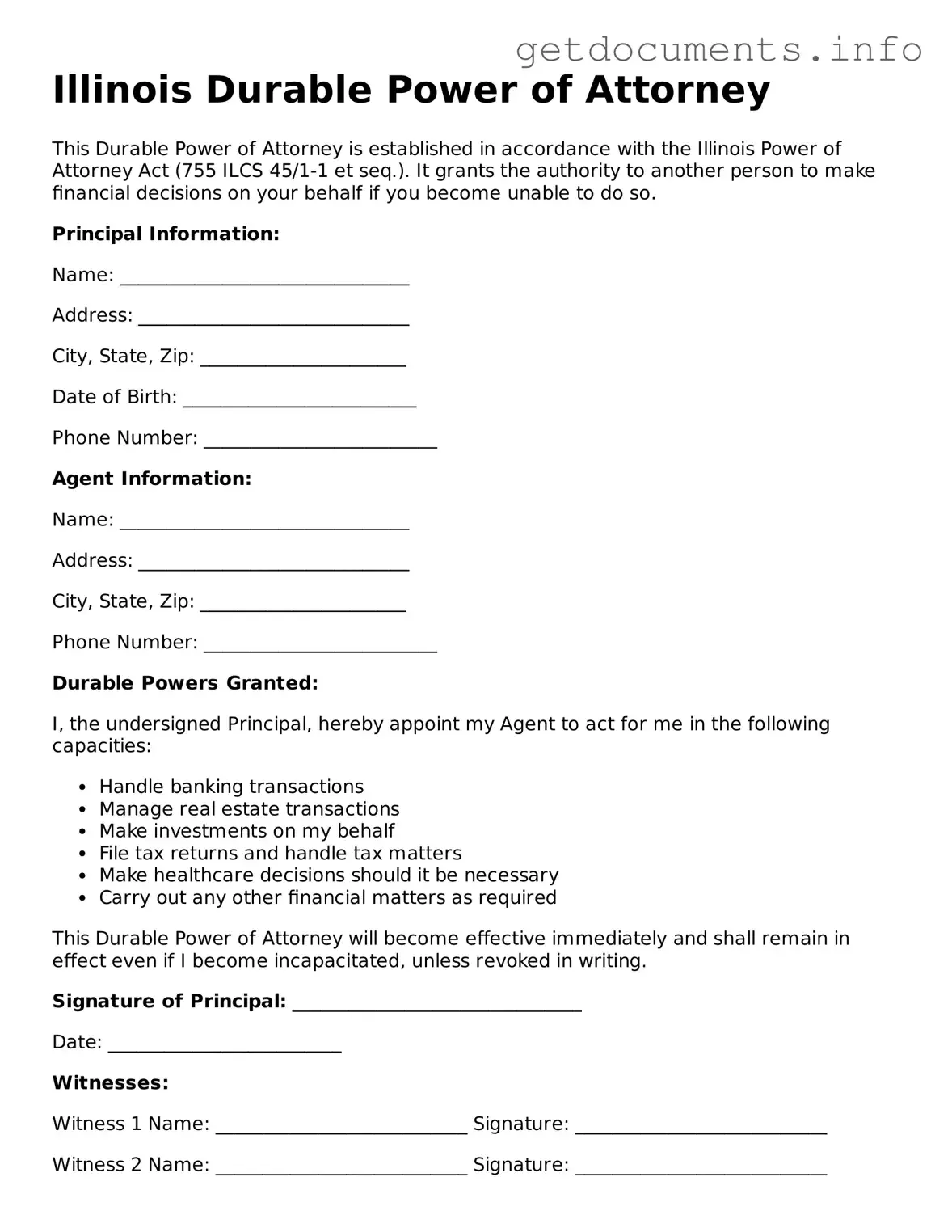Free Durable Power of Attorney Template for Illinois
A Durable Power of Attorney in Illinois is a legal document that allows you to designate someone to make decisions on your behalf if you become unable to do so. This form ensures that your financial and medical matters are managed according to your wishes, even if you lose the capacity to communicate. Taking the time to fill out this form can provide peace of mind for you and your loved ones.
Ready to take the next step? Fill out the form by clicking the button below.
Access Durable Power of Attorney Editor

Free Durable Power of Attorney Template for Illinois
Access Durable Power of Attorney Editor
Got places to be? Complete the form fast
Fill out Durable Power of Attorney online and avoid printing or scanning.
Access Durable Power of Attorney Editor
or
⇩ PDF File
